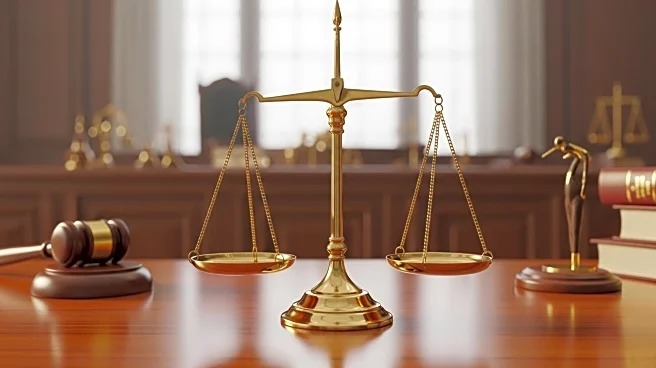What is the story about?
What's Happening?
The U.S. Supreme Court is set to address significant cases concerning transgender student rights in its new term. The court will review laws from Idaho and West Virginia that restrict transgender students from participating in sports teams aligning with their gender identity. These cases follow the court's previous decision in Skrmetti, which upheld a Tennessee law banning certain medical treatments for transgender minors. The court's rulings could clarify states' authority in regulating sports eligibility and restroom access for transgender students. The American Civil Liberties Union (ACLU) is challenging these laws, arguing they are overly broad and discriminatory.
Why It's Important?
These cases are pivotal in the ongoing national debate over transgender rights, particularly in educational settings. The outcomes could set precedents affecting the rights of transgender students across the U.S., influencing state policies and educational practices. States that have enacted similar laws are closely watching these proceedings, as a Supreme Court decision could either bolster or undermine their legislative efforts. The rulings may also impact federal education policies and funding, especially in light of previous Trump administration actions affecting education.
What's Next?
The Supreme Court's decisions in these cases are expected to be delivered later this term, potentially by early next year. The court's rulings could prompt legislative changes in states with existing or pending laws on transgender student participation in sports. Additionally, the court may address related issues, such as conversion therapy bans and educational funding affected by tariffs, which could further influence educational and social policies nationwide.
Beyond the Headlines
The broader implications of these cases touch on constitutional rights, including equal protection and free speech. The legal battles reflect deeper societal conflicts over gender identity and the role of public education in accommodating diverse student needs. The outcomes may influence public perception and legal interpretations of gender identity, potentially affecting future legislation and civil rights advocacy.

















